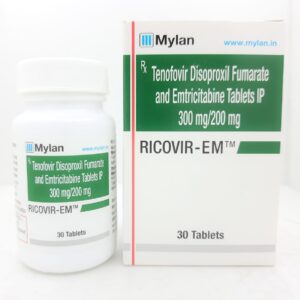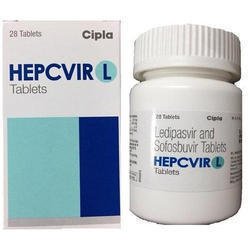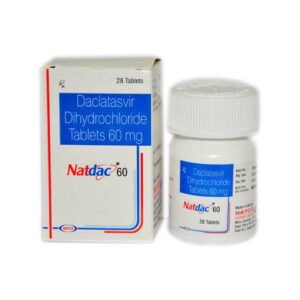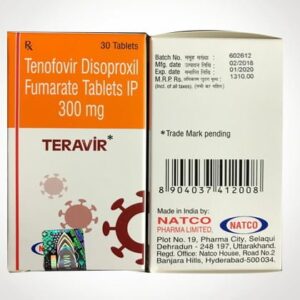Last Updated on August 3, 2024 by admin
Introduction to Pazinib 400mg Tablets
Pazinib 400mg tablets are a prescription medication primarily used in the treatment of certain types of cancer, specifically renal cell carcinoma and soft tissue sarcoma. Each tablet contains 400mg of the active ingredient Pazinib hydrochloride. The tablets are typically white to yellowish in color, oval-shaped, and film-coated for ease of swallowing.
The active ingredient, Pazinib , is a tyrosine kinase inhibitor. It works by blocking the action of specific proteins called tyrosine kinases which play a crucial role in the growth and spread of cancer cells. By inhibiting these proteins, Pazinib effectively slows down or stops the proliferation of cancerous cells, thereby helping to manage the progression of the disease.
In addition to the active ingredient, Pazinib 400mg tablets also contain several inactive ingredients that aid in the tablet’s formulation and stability. These inactive ingredients typically include microcrystalline cellulose, croscarmellose sodium, magnesium stearate, and hypromellose, among others. It is important for patients to be aware of these ingredients, especially if they have any known allergies or sensitivities.
The tablets are manufactured by several pharmaceutical companies, each adhering to stringent quality control standards to ensure the safety and efficacy of the medication. The packaging usually comprises blister packs or bottles, designed to protect the tablets from moisture and contamination. Each pack is clearly labeled with essential information, including the dosage, expiration date, and storage instructions.
Understanding the mechanism of action of Pazinib is crucial for both patients and healthcare providers. At the molecular level, Pazinib targets multiple receptor tyrosine kinases, including those involved in angiogenesis, which is the formation of new blood vessels that tumors need to grow. By inhibiting these pathways, Pazinib not only limits the growth of existing tumors but also prevents the formation of new ones, thereby offering a comprehensive approach to cancer treatment.
Uses of Pazinib 400mg Tablets
Pazinib 400mg tablets are primarily prescribed for the treatment of advanced renal cell carcinoma, a type of kidney cancer that has spread beyond the kidney. This medication works by inhibiting the growth of cancer cells, thereby slowing down the progression of the disease. It is particularly beneficial for patients who have not responded well to other forms of treatment, offering a viable alternative for managing this aggressive cancer.
Another significant use of Pazinib 400mg tablets is in the treatment of advanced soft tissue sarcoma, which encompasses a group of cancers that originate in the tissues that connect, support, and surround other body structures. These tissues include muscles, fat, blood vessels, nerves, tendons, and the lining of joints. Pazinib has been shown to inhibit tumor growth in patients with advanced soft tissue sarcoma, especially when other treatment options have failed or are not suitable.
Apart from its primary indications, Pazinib 400mg tablets are sometimes used off-label for other medical conditions. Off-label use refers to the prescription of a medication for a purpose other than those officially approved by regulatory agencies. Healthcare providers may consider Pazinib for other types of cancers or tumors based on emerging clinical evidence and individual patient circumstances. However, such uses should be closely monitored and thoroughly discussed with a healthcare professional to weigh the potential benefits and risks.
It is essential for patients to follow the prescribed dosage and administration guidelines provided by their healthcare provider. Regular monitoring and consultations are crucial to assess the effectiveness of the treatment and to manage any potential side effects. By closely adhering to medical advice, patients can maximize the benefits of Pazinib 400mg tablets while minimizing potential risks.
Medicinal Benefits
Pazinib 400mg tablets offer significant therapeutic advantages, particularly in the treatment of certain types of cancer. As an oral medication, Pazinib functions as a tyrosine kinase inhibitor, targeting receptors linked to the growth of cancer cells. By blocking these pathways, the medication effectively slows down or halts the proliferation of malignant cells, contributing to improved survival rates among patients.
One of the primary benefits of Pazinib 400mg is its efficacy in treating advanced renal cell carcinoma and soft tissue sarcoma. Clinical studies have demonstrated that patients with these conditions experienced a substantial delay in disease progression when treated with Pazinib. For instance, a pivotal study showed that patients with renal cell carcinoma had a median progression-free survival of 9.2 months compared to 4.2 months in the placebo group. Similarly, individuals with soft tissue sarcoma exhibited a progression-free survival of 4.6 months versus 1.6 months for those not receiving the medication.
Beyond extending progression-free survival, Pazinib 400mg tablets also play a crucial role in enhancing quality of life for cancer patients. The ability to manage disease symptoms more effectively means that patients can maintain a higher level of physical function and overall well-being. This enhancement is particularly important for those dealing with the physical and emotional challenges posed by advanced cancer stages.
Patient testimonials further underscore the medicinal benefits of Pazinib. Many individuals have reported a notable improvement in their daily lives, attributing increased energy levels and reduced pain to the treatment. These personal experiences align with the clinical evidence, reinforcing the medication’s value as part of a comprehensive cancer treatment plan.
In conclusion, Pazinib 400mg tablets provide substantial medicinal benefits by not only inhibiting cancer cell growth but also by improving progression-free survival and enhancing patients’ quality of life. The combination of clinical study results and patient testimonials presents a compelling case for the integration of Pazinib into cancer treatment protocols.
Directions for Use
Pazinib 400mg tablets should be taken exactly as prescribed by your healthcare provider to ensure optimal efficacy and safety. The recommended dosage is typically one tablet once daily; however, your doctor may adjust this based on individual response and tolerance. It is crucial to take the medication at the same time each day to maintain consistent levels in your bloodstream, which enhances its effectiveness.
For optimal absorption, Pazinib should be taken on an empty stomach. This means taking the tablet at least one hour before or two hours after meals. Avoid consuming grapefruit or grapefruit juice while on Pazinib, as it can interfere with the medication’s metabolism, potentially leading to adverse effects.
If you happen to miss a dose, take it as soon as you remember. However, if it is nearly time for your next scheduled dose, skip the missed dose and resume your regular dosing schedule. Do not double the dose to catch up, as this can increase the risk of side effects. In case of an overdose, seek immediate medical attention or contact a poison control center for guidance.
Sticking to the prescribed regimen is vital for achieving the best possible outcomes with Pazinib treatment. Always follow your healthcare provider’s instructions and report any unusual symptoms or side effects promptly. Proper adherence to these guidelines ensures that you maximize the benefits while minimizing potential risks associated with the medication.
Storage Instructions
Proper storage of Pazinib 400mg tablets is crucial to maintaining their effectiveness and ensuring patient safety. These tablets should be stored at a controlled room temperature, ideally between 20°C and 25°C (68°F to 77°F). Brief deviations between 15°C and 30°C (59°F and 86°F) are permissible, but prolonged exposure to temperatures outside this range should be avoided. It is essential to keep the medication in its original container, tightly closed, and away from excessive moisture and heat sources.
Humidity levels can significantly impact the stability of Pazinib 400mg tablets. Ensure that the storage area is dry and free from dampness. Avoid storing the medication in bathrooms or other areas prone to high humidity. A cool, dry cabinet or drawer away from direct sunlight is generally the best location.
For households with children or pets, it is vital to store Pazinib 400mg tablets in a secure location out of their reach. Consider using a locked cabinet to prevent accidental ingestion. Additionally, always keep the medication in its original packaging with the label intact to avoid any confusion or misuse.
Proper disposal of expired or unused Pazinib 400mg tablets is also essential. Do not dispose of the medication by flushing it down the toilet or pouring it into a drain unless instructed to do so. Instead, follow local regulations for medication disposal, which may include returning the tablets to a pharmacy take-back program or using a medication disposal kiosk. If these options are unavailable, consult your pharmacist for guidance on safe disposal practices.
By adhering to these storage and disposal guidelines, you can help ensure that Pazinib 400mg tablets retain their efficacy and safety profile throughout their shelf life, ultimately contributing to better health outcomes.
Possible Side Effects
Pazinib 400mg tablets are an effective treatment option used in managing certain types of cancer, but like all medications, they come with potential side effects. Understanding these side effects is crucial for patients and healthcare providers to ensure optimal safety and care.
Common side effects of Pazinib 400mg tablets often include mild to moderate symptoms. These can encompass gastrointestinal issues such as nausea, vomiting, and diarrhea, as well as changes in taste and a loss of appetite. Patients may also experience fatigue, weight loss, and skin color changes. Elevated blood pressure is another frequently observed side effect, necessitating regular monitoring by healthcare professionals.
Less common but more severe side effects can also occur. These may include liver toxicity, indicated by abnormal liver function tests. Symptoms such as yellowing of the skin or eyes, dark urine, and severe abdominal pain should prompt immediate medical evaluation. Cardiac issues like irregular heartbeats and heart failure have been reported, though they remain rare. Patients should be vigilant about any symptoms of chest pain, shortness of breath, or rapid weight gain, and seek medical attention if these occur.
Additionally, Pazinib can cause bleeding and clotting disorders. Unusual bruising, bleeding gums, and prolonged bleeding from cuts are signs to be aware of and report to a healthcare provider. Neurological side effects, including headache, dizziness, and changes in mental status, also warrant prompt medical consultation.
It is imperative for patients to communicate any side effects experienced while taking Pazinib 400mg tablets to their healthcare provider. Prompt reporting and management of side effects can significantly enhance patient safety and treatment efficacy. Always follow the guidance of medical professionals regarding when to seek medical attention for any adverse reactions.
Drug Warnings and Precautions
Pazinib 400mg tablets, while effective in treating certain types of cancer, come with several important warnings and precautions that need to be thoroughly understood before commencing treatment. Patients with pre-existing medical conditions, particularly those involving the liver, heart, or gastrointestinal system, should approach the use of Pazinib with caution. Contraindications for Pazinib include severe hepatic impairment, as the drug can significantly impact liver function. Patients with a history of cardiovascular issues, such as heart failure or myocardial infarction, must consult with their healthcare provider to assess the risk-benefit ratio of using Pazinib.
Regular monitoring is a critical component of the treatment regimen for patients on Pazinib. Liver function tests should be conducted before starting therapy and periodically during treatment to detect any hepatotoxicity early. Blood pressure should also be monitored frequently, as Pazinib can induce hypertension. Electrocardiograms (ECGs) may be necessary for patients with a history of cardiac issues to monitor for potential heart rhythm disturbances.
Special precautions should be taken for women who are pregnant or breastfeeding. Pazinib has been classified as a category D medication, indicating potential risks to the fetus. Women of childbearing potential should use effective contraception during and for some time after treatment with Pazinib. If pregnancy occurs while on Pazinib, the patient should be informed of the potential risks to the fetus. Breastfeeding is not recommended during treatment with Pazinib due to the possibility of serious adverse reactions in nursing infants.
Healthcare providers must thoroughly discuss these warnings and precautions with patients to ensure they are fully informed about the potential risks and necessary monitoring. This comprehensive understanding allows for better management of side effects and enhances the overall safety of using Pazinib 400mg tablets in cancer treatment.
Drug Interactions and Safety Advice
Pazinib 400mg tablets, like many medications, can interact with a variety of other drugs, potentially leading to increased risks of side effects or reduced efficacy. It is crucial for patients and healthcare providers to be aware of these potential drug interactions to ensure safe co-administration.
Common medications that may interact with Pazinib include certain antibiotics like erythromycin and clarithromycin, antifungal drugs such as ketoconazole and itraconazole, and antiretroviral medications used to treat HIV/AIDS. Additionally, drugs that affect liver enzymes, such as rifampin and phenytoin, can also alter the metabolism of Pazinib, leading to either increased toxicity or decreased effectiveness.
A drug-drug interactions checker is an invaluable tool for patients and healthcare providers. By inputting all current medications into such a checker, users can quickly identify potential interactions and take appropriate action, such as adjusting dosages or choosing alternative therapies.
General safety advice for those taking Pazinib 400mg includes avoiding grapefruit and grapefruit juice, as they can increase the levels of Pazinib in the bloodstream, potentially leading to heightened side effects. Additionally, alcohol should be consumed with caution, as it can exacerbate liver-related side effects associated with Pazinib.
It is important to note that Pazinib is not considered habit-forming. However, patients should take the medication exactly as prescribed by their healthcare provider and should not abruptly discontinue use without medical advice, as this could lead to adverse effects.
Dietary recommendations for patients taking Pazinib include maintaining a balanced diet rich in fruits, vegetables, lean proteins, and whole grains to support overall health. Staying hydrated is also essential, as it can help mitigate some of the side effects of the medication.
Ensuring safe and effective use of Pazinib 400mg tablets involves careful monitoring of potential drug interactions and adhering to safety advice provided by healthcare professionals.
Uses of Pazinib 400mg Tablet
Administration and Dosage Guidelines
Pazinib 400mg tablets are prescribed with specific administration and dosage guidelines to ensure optimal efficacy and safety. The standard recommended dosage for adults is 800mg per day, typically divided into two 400mg doses. However, the exact dosage may vary based on individual patient factors, including the type of cancer being treated, patient response to the medication, and overall health condition. It is crucial that patients adhere strictly to the prescribed dosage regimen to maintain the effectiveness of the treatment.
Pazinib tablets should be taken on an empty stomach, either one hour before or two hours after a meal. This timing is essential to ensure maximum absorption and bioavailability of the drug. Patients should swallow the tablets whole with water and avoid crushing, chewing, or splitting them, as this could alter the drug’s effectiveness.
In the event of a missed dose, patients should take the missed dose as soon as they remember. However, if it is nearly time for the next scheduled dose, they should skip the missed dose and resume their regular dosing schedule. Doubling up on doses to make up for a missed one is not recommended, as this could increase the risk of side effects.
Adherence to the prescribed regimen is critical in managing the condition effectively. Patients should not stop taking Pazinib without consulting their healthcare provider, even if they feel better, as this could lead to a relapse or progression of the disease.
Patients should inform their healthcare provider of all medications they are currently taking, including over-the-counter drugs, supplements, and herbal products, as Pazinib can interact with other substances. Specific foods, such as grapefruit and grapefruit juice, should be avoided during treatment due to potential interactions that can affect the drug’s efficacy.
Following these administration and dosage guidelines can help ensure that patients receive the maximum therapeutic benefit from Pazinib while minimizing the risk of adverse effects.
Safety Advices for Pazinib 400mg Tablet

Pregnancy
Pazinib 400mg tablet is unsafe to administer in pregnant women because it may affect the fetus. Inform your physician if you are pregnant, suspect pregnancy, or planning to become pregnant. Using an effective birth control method during the treatment and for at least 2 weeks after your last dose is necessary.

Breast Feeding
Breastfeeding is not recommended in patients taking Pazinib 400mg tablet because the medicine passes into the breast milk in small amounts and may harm your baby.

Lungs
It is unknown whether Pazinib 400mg tablet can be used in patients with lung disorders. Consult your doctor if you have any lung diseases before starting the treatment.

Liver
Pazinib 400mg tablet is unsafe when administered in patients with severe liver diseases. Dose adjustments are necessary for moderate liver failure. Inform your physician if you have liver problems before initiating the therapy.

Alcohol
It is unknown whether it is safe to consume alcohol when taking Pazinib 400mg tablet. Consult your doctor for more advice.

Driving
Driving or operating heavy machinery is unsafe after taking Pazinib 400mg tablet because you may feel dizzy, drowsy, or have blurred vision.

Kidney
More Information about Pazinib 400mg Tablet
- Store Pazinib 400mg tablet in room temperature (25°C)
- Keep the injection away from the reach of children and pets.
- If you forgot to take a dose, take it as soon as you remember. However, skip the missed dose if it is nearly time for the next dose.
- Do not take a double dose to make up for a forgotten dose.
Potential Side Effects and Precautions
Pazinib 400mg tablets, like any medication, can cause side effects in some patients. Understanding these potential side effects is crucial for those undergoing treatment. Common side effects associated with Pazinib include nausea, fatigue, liver function abnormalities, and hypertension. These symptoms are usually manageable but should be reported to a healthcare provider if they become severe or persistent.
In addition to these common side effects, there are rare but serious side effects that patients should be aware of. These include heart problems, such as heart failure or irregular heartbeat, and severe liver damage. Symptoms of serious liver damage may include yellowing of the skin or eyes (jaundice), dark urine, severe abdominal pain, and unusual tiredness. If any of these symptoms occur, it is imperative to seek medical attention immediately.
Regular monitoring and follow-up with healthcare providers are essential when taking Pazinib. Patients will typically undergo routine blood tests to monitor liver function and blood pressure checks to manage hypertension. These regular assessments help in early detection of any adverse effects, allowing for timely intervention and adjustment of the treatment plan if necessary.
To minimize risks while on Pazinib treatment, patients should adhere to several precautionary measures. It is important to take the medication exactly as prescribed and not to alter the dosage without consulting a healthcare provider. Patients should also inform their healthcare provider about all other medications and supplements they are taking to avoid potential interactions. Additionally, avoiding consumption of grapefruit and grapefruit juice is recommended, as these can interfere with the effectiveness of the medication.
In summary, while Pazinib 400mg tablets can be effective in treating certain conditions, it is vital for patients to be informed about potential side effects and take necessary precautions. Regular communication with healthcare providers and adherence to prescribed guidelines play key roles in ensuring the safe and effective use of this medication.
Side Effects of Pazinib 400mg Tablet
Side effects are unwanted symptoms caused by medicines. Even though all drugs cause side effects, not everyone gets them.
Common
- Hypertension
- Hair color change
- Increased glucose levels
- Decreased weight, decrease in appetite
- Diarrhea
- Nausea, vomiting
- Muscle and joint pain
- Headache
- Shortness of breath
- Tiredness
Serious
- Heart problems
- Bleeding from the anus, mouth
- Hypothyroidism
- Interstitial lung disease
- Infections
FAQs – Pazinib 400mg Tablet
Q: 1. What is Pazinib 400mg tablet used for?
A: Pazinib 400mg tablet is primarily used to treat advanced renal cell carcinoma (kidney cancer) and soft tissue sarcoma.
Q: 2. When is the best time to take Pazinib 400mg tablet?
A: It is recommended to take Pazinib 400mg tablet at the same time each day, preferably with food to help reduce stomach upset.
Q: 3. What are the long-term side effects of Pazinib 400mg tablet?
A: Long-term use of Pazinib 400mg tablet may lead to potential side effects such as high blood pressure, liver problems, thyroid issues, and fatigue.
Q: 4. Can you provide a review of Pazinib 400mg tablet?
A: Reviews for Pazinib 400mg tablet vary, with some patients experiencing positive outcomes in managing their cancer, while others may encounter side effects that impact their quality of life. It is essential to consult with your healthcare provider for personalized guidance.
Q: 5. What are the common uses of Pazinib 400mg tablet?
A: Apart from treating advanced renal cell carcinoma and soft tissue sarcoma, Pazinib 400mg tablet may also be prescribed for other types of cancer or conditions as determined by a healthcare professional.
Q: 6. What is the recommended dosage of Pazinib 400mg tablet?
A: The recommended dosage of Pazinib 400mg tablet can vary based on the individual’s medical condition and response to treatment. It is crucial to follow your healthcare provider’s instructions regarding dosage and duration of use.
Q: 7. Is Pazinib 400mg tablet safe to use?
A: Pazinib 400mg tablet is generally considered safe when used as prescribed by a healthcare provider. However, like any medication, it may cause side effects or interactions with other drugs. It is important to discuss your medical history and any concerns with your healthcare provider before starting Pazinib 400mg tablet.
Q: 8. What are the potential drug interactions with Pazinib 400mg tablet?
A: Pazinib 400mg tablet may interact with certain medications, including blood thinners, antifungal drugs, and certain antibiotics. Inform your healthcare provider about all the medications you are currently taking to prevent potential interactions.
Q: 9. How long does it take for Pazinib 400mg tablet to show results?
A: The effectiveness of Pazinib 400mg tablet can vary from person to person. Some individuals may experience improvements in their condition within weeks, while for others, it may take longer. It is important to stay consistent with your treatment and follow-up appointments for optimal results.
Q: 10. Can Pazinib 400mg tablet be taken during pregnancy or while breastfeeding?
A: Pazinib 400mg tablet may harm an unborn baby and is not recommended during pregnancy. It is essential to use effective contraception during treatment with Pazinib 400mg tablet. Consult with your healthcare provider regarding the risks and benefits of using this medication while breastfeeding.
Q: 11. Are there any specific dietary restrictions while taking Pazinib 400mg tablet?
A: While there are no specific dietary restrictions associated with Pazinib 400mg tablet use, maintaining a healthy and balanced diet is important for overall well-being and may support your treatment. Consult with a healthcare provider or a registered dietitian for personalized dietary recommendations.
Q: 12. What should I do if I miss a dose of Pazinib 400mg tablet?
A: If you miss a dose of Pazinib 400mg tablet, take it as soon as you remember. However, if it is almost time for your next dose, skip the missed dose and continue with your regular dosing schedule. Do not double the dose to make up for a missed one.
Q: 13. Can Pazinib 400mg tablet be crushed or split for easier administration?
A: It is recommended to swallow Pazinib 400mg tablets whole with water and not crush or split them unless advised by a healthcare provider. Altering the form of the tablet may affect its efficacy or increase the risk of side effects.
Q: 14. What should I do if I experience severe side effects while taking Pazinib 400mg tablet?
A: If you experience severe side effects such as difficulty breathing, severe allergic reactions, or significant changes in health status while taking Pazinib 400mg tablet, seek immediate medical attention or contact your healthcare provider for guidance.
Q: 15. Can I engage in physical activities or drive while taking Pazinib 400mg tablet?
A: Pazinib 400mg tablet may cause fatigue or dizziness as side effects, which can affect your ability to engage in certain activities such as driving or operating heavy machinery. It is advisable to assess your individual response to the medication and avoid activities that require alertness if you experience these side effects.
Q: 16. what is the Pazinib 400mg tablet price in india?
References:
- Highlights Of Prescribing Information – Pazopanib. [Revised on 2021] [cited 2023 Mar 24]. Available from: https://www.novartis.com/us-en/sites/novartis_us/files/votrient.pdf
- Summary Of Product Characteristics – Pazopanib. [revised on 2021] [cited 2023 Mar 24]. Available from: https://www.ema.europa.eu/en/documents/product-information/votrient-epar-product-information_en.pdf
- Votrient 400 mg film coated tablets – Summary of Product Characteristics (SmPC) – (emc). www.medicines.org.uk. 2021 [cited 2023 Mar 24]. Available from: https://www.medicines.org.uk/emc/product/572/smpc
- Edward Chu, Cancer Chemotherapy, Lange’s Basic and Clinical Pharmacology, 14th Edition, 2018, 948-976.

























